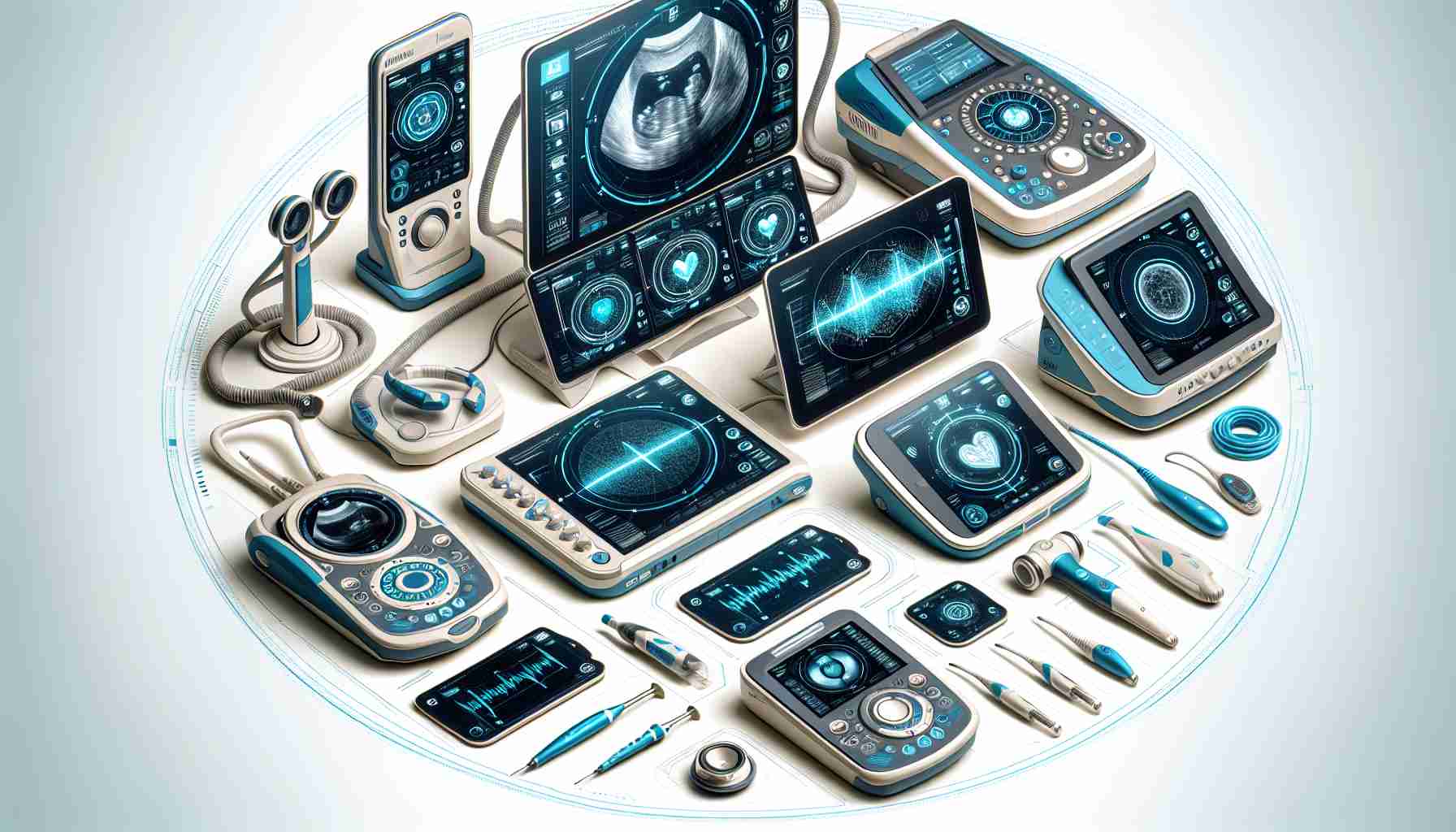Samsung Medison, traditionally known for its foray into medical equipment manufacturing, is now expanding its business through artificial intelligence (AI). With a clear goal in sight, the company plans to amplify its growth by exploring new avenues for expansion.
According to industry reports on the 15th, medical device companies that have been focusing on hardware, such as MRI and ultrasound machines, are now keenly investing in AI as the next substantial opportunity. Research from Statista forecasts that by 2030, the global AI healthcare market is expected to balloon from $11 billion in 2021 to $188 billion.
Samsung Medison, an affiliate of Samsung Electronics, preemptively ventured into the AI realm. They have introduced cutting-edge AI functionalities in their ultrasound medical devices, gaining a competitive edge particularly in gynecology, orthopedics, and radiology. The ‘HERA W10 Elite’ ultrasound device exemplifies their innovation with features that serve to automatically measure and document fetal heart rates, analyze fetal growth metrics, and support medical imaging processes.
Their initiatives have not gone unnoticed in the academic world. Samsung Medison has been invited to present its AI diagnostic support technology at prestigious global conferences and will be a main sponsor at the Asia-Oceania Congress of Obstetrics and Gynaecology.
In August of the previous year, Samsung Medison retrofitted ultrasound models ‘V7’ and ‘V8’ with automated heart measurement capabilities. These models also now include advanced diagnostic features, such as ‘S-Shearwave Imaging’ and ‘NerveTrack,’ intended to assist in the detection and treatment of musculoskeletal diseases.
Recently, the company further solidified its position in the AI sector by acquiring French AI firm Sonio, specializing in obstetric ultrasound diagnostics. This strategic move aims to dramatically reduce diagnostic time for medical professionals and enhance the quality of patient care.
Post AI integration, Samsung Medison has witnessed a significant uptick in performance. Following a few challenging years after being acquired by Samsung in 2011, the company has seen a marked improvement in its revenue—a record high of 5.174 trillion won last year, marking a 30.2% increase over two years. With 90% of its revenue sourced from exports, and a significant portion coming from Asia, Samsung Medison views improving healthcare infrastructure in Southeast Asia as a strategic focus and is actively developing AI technologies to improve workflows and convenience in diagnostics.
Looking forward, Samsung Medison aims to strengthen its product competitiveness and penetrate the North American market—home to the largest demand for ultrasound technologies. They anticipate that collaboration with Sonio will bolster their presence in Europe and also fuel their endeavors to continuously innovate and enhance their product offerings.
Artificial Intelligence in Medical Devices: The New Frontier
Industry giants like Samsung Medison are harnessing the power of artificial intelligence (AI) to revolutionize the medical device landscape. By embedding AI into medical equipment, companies aim to create smarter, more efficient tools that can provide better patient outcomes and streamline healthcare processes.
Important Questions and Key Challenges
The pursuit of artificial intelligence in medical devices sparks several critical questions and faces inherent challenges:
1. How will AI improve diagnostic accuracy and patient care?
AI can analyze medical imaging with high precision, often detecting subtleties that may be overlooked by the human eye. This can lead to earlier and more accurate diagnoses and personalized treatment plans.
2. What are the ethical implications of AI decision-making in healthcare?
Reliance on AI to make clinical decisions carries ethical concerns, such as ensuring it is free from biases and the question of liability in case of errors.
3. What challenges does AI face in terms of data privacy and security?
Medical data is highly sensitive. AI systems must be designed to protect patient privacy and secure data against breaches.
4. How will AI integration impact the job market within healthcare?
While AI could streamline work and reduce repetitive tasks, there is a fear that it might lead to job losses or require significant retraining for healthcare professionals.
Advantages and Disadvantages
Advantages include improved healthcare quality with more accurate diagnostics, potential cost-effectiveness by reducing the need for repeat tests, and the ability to handle large volumes of data to uncover trends and insights not easily detectable by humans.
Disadvantages could encompass the high costs of developing and integrating AI, potential job displacement, and issues surrounding trust in AI systems to handle sensitive medical decisions.
Controversies may arise over machine learning algorithms’ sensitivity regarding patient privacy and the autonomy of AI without human oversight.
Related to the advancements by Samsung Medison, the acquisition of French AI firm Sonio signals a strategic move to deepen their proficiency in AI and expand their diagnostic capabilities. The integration of AI in devices like the ‘HERA W10 Elite’ underscores how the approach is specifically tailored to enhance functionality in gynecology, orthopedics, and radiology.
For more information related to advancements in AI technologies and Samsung’s initiatives, you may visit:
– Official Samsung Website
– Statista for Industry Reports
Samsung Medison’s focus on the Southeast Asian market recognizes the region’s burgeoning healthcare sector and showcases its strategy to leverage exports for revenue. By seeking to strengthen its product competitiveness and expand into the North American market, Samsung Medison encapsulates the broader industry trend of medical device companies vying to establish dominance in AI-infused healthcare solutions.

